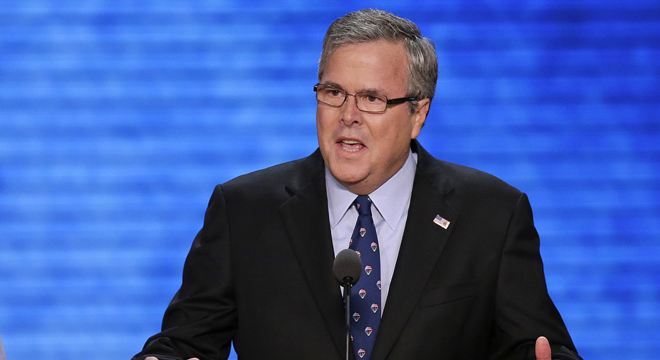You’re going to be seeing a lot of Jeb Bush in the next few months. The former Florida governor is spearheading an effort to bring Republicans into the pro-immigration fold, a campaign that he brought to the conservative Wall Street Journal editorial page on Friday with an op-ed on why he supports comprehensive reform.
“The sudden ferment on this issue, which was largely dormant since efforts at comprehensive reform were torpedoed five years ago, is as welcome as it is overdue,” Bush, who co-authored the piece with attorney Clint Bolick, wrote. “The growing consensus on both sides of the political aisle that something needs to be done should not be squandered, for such opportunities are rare and fleeting.”
Bush used his piece to address a number of common Republican concerns about reform — that it should be eschewed in favor of tougher border security, that a path to citizenship for undocumented immigrants would represent “amnesty” — calling such approaches “shortsighted and self-defeating.”
“The best way to prevent illegal immigration is to make sure that we have a fair and workable system of legal immigration,” he wrote. “The current immigration system is neither.”
Notably, Bush called for “comprehensive” reform, rejecting suggestions from some Republicans that the issue be handled with a series of smaller bills. According to Bush, only a larger package can address both the problem of what to do with the currently 11 million undocumented immigrants in America and how to correct the legal immigration system so that it prevents a similar buildup from occurring in the future.
“If one or more pieces are out of whack, the puzzle makes no sense,” he wrote. “To fix the system, Congress must make sure all of the pieces fit together, logically and snugly.”
Bush, who has a book on immigration coming out in March, is one of several prominent conservatives taking on a public role in selling their party on immigration reform. Fellow Floridian Sen. Marco Rubio (R-FL) has also emerged as a key player who is working hard to sell right-wing television and radio hosts on a similar framework for reform, which like Bush’s mostly resembles past bipartisan proposals broadly in line with the White House’s goals. Business and religious groups more often associated with conservative economic and social policy respectively are also launching public relations and lobbying campaigns to win over Republican lawmakers, especially in the GOP-controlled House.






